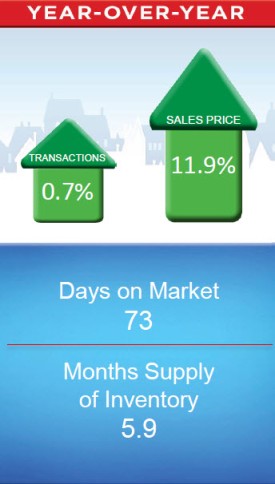You’ve followed the letter of the document during the term of your lease, and now are counting on using the security deposit held by your landlord to make your very first mortgage payment or possibly make a down payment on a new car, but still have not received your deposit funds back.

A recent poll of 1,000 U.S. renters by the popular website Rent.com shows that more than a quarter of renters lost their security deposit at some point during their rental careers, and more than a third of these said their landlords gave them utterly no explanation why they didn’t get anything returned.
Make sure this doesn’t happen to you by following these simple guidelines:
Make Sure You Read and Understand Your Lease Before Signing – Many renters miss the specific guidelines laid out by their landlord regarding the return of their deposit. A list should be made and agreed upon regarding the conditions of the property at the end of the lease BEFORE you sign it. Take pictures of the rooms in the premises before you move in.
Get a Receipt For Your Security Deposit – Keep it in a safe place where you will be able to find it at the end of the lease.
Know the Law – Landlords cannot deduct from your deposit without justification. They must have good reason to keep any of the funds and return the balance within a reasonable period. Most states require landlords to provide an itemized written accounting, typically within 14 to 30 days after you move out. Even if you are evicted, the landlord must follow these rules.
Leave the Premises as Close To or Better Than “Move In” Condition As Possible – The landlord should be allowed this reasonable expectation from their tenant. On your part, this might mean putting forth extra effort to clean the carpets, the bathtub, the closets and everything else. Make sure to repair anything that needs fixing, even if it’s replace switch plates and remove all debris. Leave nothing behind, including cleaning materials and empty boxes.
As an added precaution, take pictures or videos of every room before you leave for the last time and get witnesses who can attest to your work. Compare these to the photos you took before you moved in.
Request an Inspection – Demand that the landlord inspect the premises in your presence, allowing you an opportunity to fix anything you may have missed or do additional required cleaning.
Your landlord cannot charge you for normal wear and tear. If the carpet was not new to begin with, you should not have to replace the carpet if it has been cleaned and there are no stains. If the refrigerator was old to begin with and you caused no damage to it, then you should not be required to replace it.
Request a Written Statement – If your security deposit is being withheld, request a detailed statement as to how many deductions are being applied – cleaning, repairs, back rent, unpaid utility bills, etc. But again, if the washing machine needs to be replaced because it is simply on its last legs, that’s normal wear and tear, for which you are not responsible.
Leave a Forwarding Address – Your landlord cannot return your deposit unless he or she knows where you are. Some states allow landlords to keep the money if the tenant can’t be located within a specified time frame.
Be Diligent – Don’t roll over and let the landlord off the hook. If the justified return of the deposit is late or your landlord provides no explanation for the return of your deposit, demand, in writing, that the security deposit be returned. Send your letters via certified mail, with a return receipt. Keep copies of your letter(s), which should review the facts and spell out precisely why you believe the landlord owes you the money and what you expect. Cite your state’s security deposit law and say that you will sue in small claims court if necessary to get your money back if he or she does not act promptly and accordingly.
File a Claim – If you receive no response or are dissatisfied with the response, you can file a lawsuit in small claims court. You can sue for the amount of your deposit wrongfully withheld plus punitive damages, in some states. You don’t need a lawyer to file; you can do it yourself for very little money.
For more information on Georgia’s Tenant Laws click here; subject to change at any time.
 Despite the traditional winter slow down, both home prices and sales inched higher in December. The RE/MAX National Housing Report, a survey of MLS data in 52 metropolitan areas, found the December median home price of $185,400 was 11.9% higher than the median in December 2012. After double-digit growth in home sales during the summer, sales cooled off, but December still saw a 0.7% year-over-year increase. Slower sales growth is associated with a limited inventory of homes for sale coupled with increased lending requirements and mortgage fees. At the rate of home sales in December, the Months Supply of inventory rose to 5.9 months, nearly equal to the 6.0 supply that defines a market balanced equally between buyers and sellers. Although the national inventory situation remains tight, it appears to be trending in the right direction. With a 12.0% drop in inventory from December 2012, the percentage of year-over-year inventory loss has shrunk for nine consecutive months.
Despite the traditional winter slow down, both home prices and sales inched higher in December. The RE/MAX National Housing Report, a survey of MLS data in 52 metropolitan areas, found the December median home price of $185,400 was 11.9% higher than the median in December 2012. After double-digit growth in home sales during the summer, sales cooled off, but December still saw a 0.7% year-over-year increase. Slower sales growth is associated with a limited inventory of homes for sale coupled with increased lending requirements and mortgage fees. At the rate of home sales in December, the Months Supply of inventory rose to 5.9 months, nearly equal to the 6.0 supply that defines a market balanced equally between buyers and sellers. Although the national inventory situation remains tight, it appears to be trending in the right direction. With a 12.0% drop in inventory from December 2012, the percentage of year-over-year inventory loss has shrunk for nine consecutive months.




